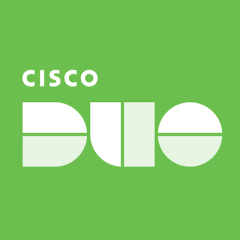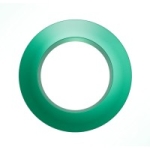What is our primary use case?
Our main use case for Cisco Duo is multi-factor authentication, specifically setting up Zero Trust for different users within our organization.
How has it helped my organization?
Duo features have specifically benefited our organization by allowing us to add security measures. Whenever you add something security-wise, it can add either more complexity or slow down access. Anything that we could quickly use simply and not have any interruption while trying to access a website has been beneficial.
What is most valuable?
The features of Cisco Duo that I prefer the most include the one-time passcodes and the push notifications, which are much quicker with Duo for some reason, making it my favorite aspect from a user experience standpoint.
What needs improvement?
To improve Cisco Duo, the biggest consideration is the licensing standpoint; the most common issue I've found is customers not setting up the Active Directory sync properly, leading to inflated licensing usage when they try to delete inactive users that are still being charged. An additional feature that should be included in the next release of Cisco Duo is a password manager.
For how long have I used the solution?
I've used hte solution for five years.
What do I think about the stability of the solution?
There has been no downtime, crashes, or performance issues with Cisco Duo.
What do I think about the scalability of the solution?
Cisco Duo scales with the growing needs of our organization by making it easy to acquire more licensing, especially with an enterprise agreement, which allows built-in growth and minimizes worries about licensing as we expand.
We have expanded usage of Cisco Duo; it has been smooth, and I have no complaints there, but to be fair, we are very familiar with Cisco ordering processes.
How are customer service and support?
Compared to Cisco, the general support I experience is fantastic; I have no complaints about it.
How would you rate customer service and support?
Which solution did I use previously and why did I switch?
Prior to adopting Cisco Duo, I was using Okta to address similar needs.
What stood out to me in the evaluation process when comparing solutions was Cisco Duo's simple integration with the Cisco ecosystem and the helpful documentation and learning resources available for our managed service team, especially a dropdown menu in the Duo dashboard that provides useful learning material.
How was the initial setup?
The Active Directly sync is a bit difficult during implementation. Other than that, the deployment is smooth.
What was our ROI?
I can say that I have seen negative ROI with Cisco Duo since it adds an additional cost for customers who may find alternatives through Microsoft Defender; however, existing users of Duo remain happy with it and the integration with the rest of Cisco.
What's my experience with pricing, setup cost, and licensing?
My experience with pricing, setup costs, and licensing has been complaint-free, although the biggest threat to Duo is Microsoft's EA, where their version of Duo is integrated, causing many friends to feel forced to stay within that ecosystem due to the reliance on calling, email, and Office.
Which other solutions did I evaluate?
Before selecting Cisco Duo, I considered Okta, which I found to be more expensive; they do have great features regarding identity and the app dashboard. However, in the end, mostly we have feature parity.
Also, the way Microsoft integrates their enterprise agreement obligates users to stay with it rather than paying for additional products.
What other advice do I have?
I did not purchase the product on AWS Marketplace.
Regarding new features or functionalities in Cisco Duo, we have not adopted anything recently from the end customer standpoint; we've had that setup from day one.
I evaluate the benefit of having a complete passwordless environment in our organization by acknowledging that we have not gone passwordless yet.That will be a next step, although we want to learn more about it before implementation. My hesitation to going passwordless is due to a lack of knowledge and time to learn about it and implement a process to convert everybody over. Many of our internal employees aren't even using password managers, which is concerning, so transitioning them straight to passwordless is a challenge.
We do not utilize the Advanced Identity Threat Detection and Response in Cisco Duo. We're primarily using Cisco Duo for multi-factor authentication, setting up different security levels for our IT team and different groups for access to various internal resources, however, we haven't implemented anything advanced with detection or response.
I have not used Duo's conversational AI interface for admin tasks.
My advice to other organizations considering Cisco Duo is to get the provisioning dialed in before deployment to avoid being hit with overages, as this has been the main struggle we've encountered, which I've seen in other organizations as well.
On a scale of one to ten, I rate Cisco Duo a nine.
Disclosure: My company has a business relationship with this vendor other than being a customer. Partner

















